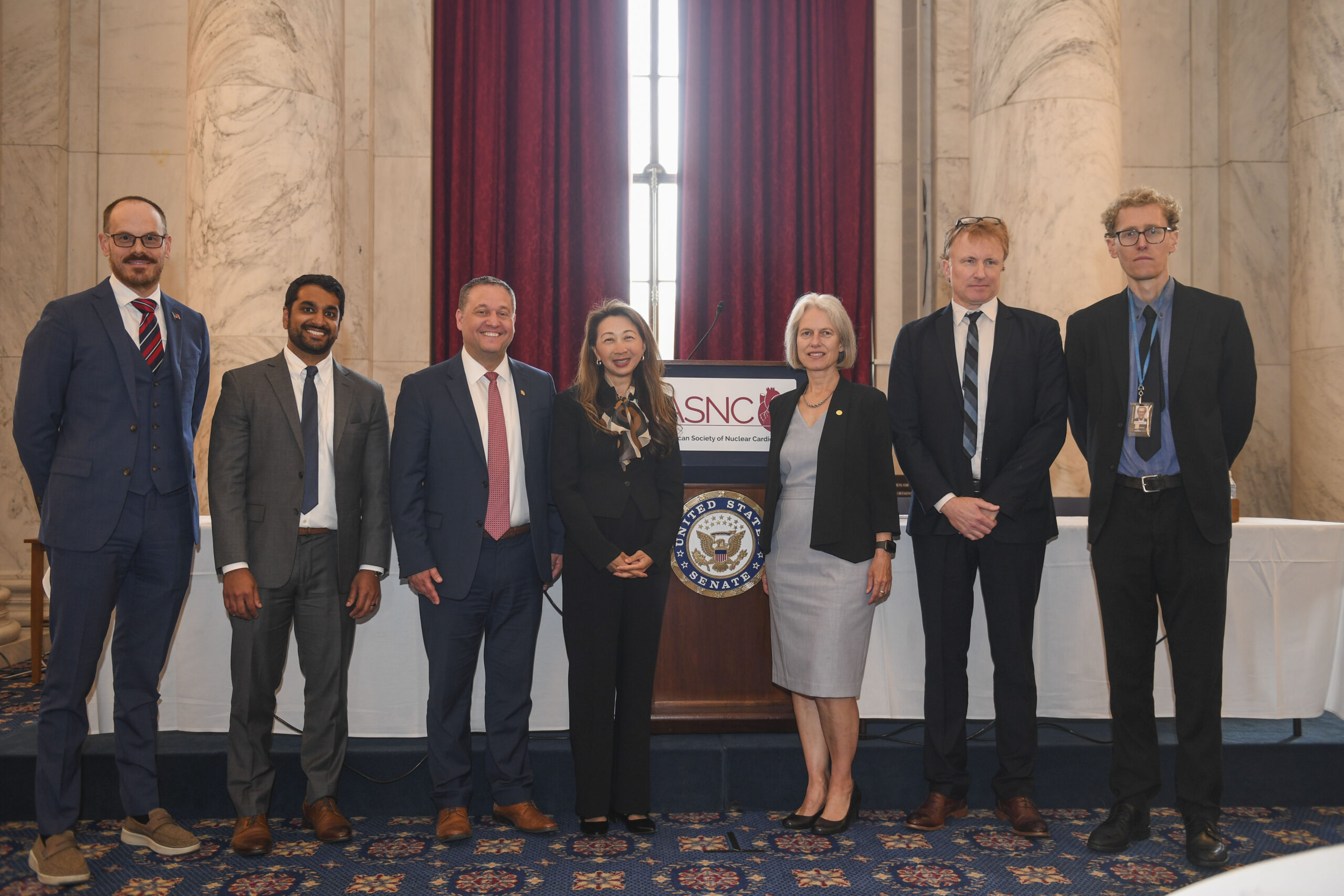Excellent Discussion on How to Reform Prior Auth Practices
On June 3, ASNC welcomed a packed room of congressional staffers, as well as local stakeholders, to a Capitol Hill briefing highlighting the impacts of burdensome prior authorization policies on patient care and clinician well-being.
Speaking in the Senate’s Kennedy Caucus Room, ASNC President Panithaya Chareonthaitawee, MD, explained the importance of early, accurate diagnosis of cardiovascular disease and the critical role of nuclear cardiology in patient care. ASNC Immediate Past President Lawrence Phillips, MD, MASNC, moderated a panel discussion of experts with varying experiences with prior authorization. The panel included –
- Ryan McDonald, counsel with the U.S. Senate Permanent Subcommittee on Investigations. Mr. McDonald outlined Subcommittee findings on how the nation’s three largest Medicare Advantage insurers – UnitedHealthcare, Humana, and CVS – have used prior authorization to deny patient care.
- Neil Patil, MPP, senior fellow and policy director of the Medicare Policy Initiative at Georgetown University’s Center on Health Insurance Reform. Mr. Patil highlighted gaps in Medicare Advantage prior authorization regulations that would be addressed by provisions in the Improving Seniors’ Timely Access to Care Act.
- Patrick Rucker, an award-winning investigative journalist whose reporting on Propublica‘s Uncovered project brought to light practices used by EviCore to deny patient care. Mr. Rucker, senior correspondent for Capitol Forum, shared insights from his investigations into the medical benefits management company’s use of artificial intelligence to increase review of requests for services.
- David E. Winchester, MD, MS, FASNC, deputy chair of ASNC’s Health Policy Committee, detailed the disruptive effects of prior authorization processes on physician practices. He also explained added costs and inefficiencies that can accompany preauthorization requirements and the potential effects of delays on patients’ outcomes.
ASNC Health Policy Chair Friederike Keating, MD, FASNC, who moderated Q&A following the panel discussion, thanked the briefing’s full house for caring about prior authorization and for seeking solutions that will serve their constituents.
Focus on Next Steps: Legislative and Other Solutions
Dr. Phillips asked the briefing’s panelists to comment on why the perception among many physicians is that prior authorization requirements have become worse, not better, over time. Among the reasons, the panelists suggested, is payers’ increasing reliance on artificial intelligence and predictive technologies for authorization review and claims. They emphasized the need to codify rules the Centers for Medicare & Medicaid Services has established to streamline processes and increase transparency.
Watch for more reporting from ASNC’s congressional briefing.
Article Type
News & Announcements
Category
Advocacy, Prior authorization
Related Posts
This Legislation Would Halt Pay Cut Now Impacting Most Physician Services
“The 2.5% reduction to work RVUs – the so-called ‘efficiency adjustment’ –…
Manufacturer Shares Update on HMDP Supply
ASNC is staying in touch with radiopharmaceuticals manufacturers that were expecting shortages…
Medicare Telehealth Flexibilities Expire as Federal Government Partially Shuts Down
Congress’s failure to pass the remaining 6 fiscal year 2026 spending bills,…


